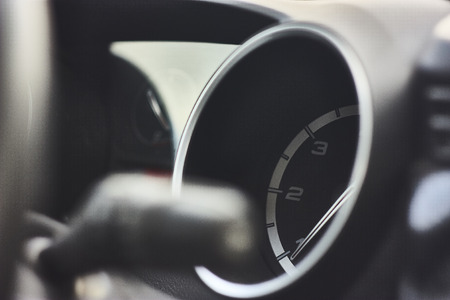Essential Documents for UK Drivers Overseas
If youre planning to hit the open road abroad with your own car or a hire vehicle, there are several key documents you’ll need to carry to stay on the right side of foreign motoring laws. From passports to insurance, each item plays a crucial role in ensuring your journey goes smoothly and legally.
Must-Have Paperwork for British Drivers Abroad
| Document | Purpose | UK Driver’s Checklist |
|---|---|---|
| Passport | Proof of identity at borders and when dealing with authorities. | Make sure it’s valid for the duration of your trip (and check any country-specific expiry requirements). |
| Driving Licence | Confirms you’re legally allowed to drive. | A photocard UK licence is generally accepted across Europe and many other countries. If you still have a paper licence, double-check local requirements. |
| International Driving Permit (IDP) | Acts as an official translation of your driving licence. | Needed in some countries outside the EU/EEA. Check if your destination requires an IDP; different countries may ask for different types (1949, 1968, or 1926 conventions). |
| Vehicle Log Book (V5C) | Proves ownership and registration of your car. | The original V5C document must travel with you if driving your own vehicle. |
| Insurance Documents | Proof that you have valid motor insurance cover abroad. | Your UK policy may provide minimum third-party cover in the EU; check if a Green Card is needed elsewhere and consider additional cover. |
Quick Tip for Campers & Road Trippers:
If you’re travelling with a campervan or towing a caravan, ensure all documents list these vehicles correctly. Double-check weight and length restrictions on ferries and at border crossings, too!
Understanding Car Insurance and Breakdown Cover Abroad
Before setting off on a self-drive adventure across Europe or further afield, it’s crucial to understand the legalities surrounding car insurance and breakdown cover. Comprehensive insurance isn’t just a safety net—it’s a must-have for UK drivers exploring foreign roads. A standard UK policy may offer third-party cover in some European countries, but this varies by insurer and destination. For peace of mind, check if your policy extends comprehensive protection while abroad. If not, consider upgrading or purchasing additional short-term cover.
The Importance of Green Cards
Many British insurers now issue proof of insurance digitally, but some countries still require a physical Green Card—an internationally recognised document proving your vehicle is insured. It’s wise to request one from your insurer several weeks before departure, especially if you’re driving in the EU, EEA, or beyond. Some non-EU destinations bordering Europe will strictly enforce this requirement at border crossings.
European Breakdown Cover: What to Expect
No one wants their road trip derailed by a breakdown in an unfamiliar place. European breakdown cover ensures you won’t be stranded if your vehicle fails while travelling on the continent. Most UK providers offer various levels of assistance, from roadside repairs to onward travel and repatriation for your car. Always confirm what’s included; some policies exclude remote areas or specific countries.
Comparison Table: Key Features from British Insurers
| Feature | Standard Policy | Extended/Comprehensive Policy |
|---|---|---|
| Third-Party Cover in Europe | Included (limited duration/countries) | Wider coverage, longer trips |
| Comprehensive Cover Abroad | Often excluded | Available as upgrade or add-on |
| Green Card Issued | On request (may take time) | Faster processing, sometimes automatic |
| Breakdown Assistance | UK only | Pan-European support & repatriation |
Topping Up Your Protection Before You Go
If you’re planning to cross multiple borders or venture into less-travelled regions, contact your insurer well in advance. Ask about policy limits, documentation needed at checkpoints, and emergency contacts available 24/7. Double-check the fine print for exclusions—like mountainous terrain or unsealed roads—to ensure your insurance truly covers your planned route.

3. Local Driving Laws and Road Etiquette
Navigating foreign roads isn’t just about following the sat nav; it’s also about understanding the unique rules and customs that come with each destination. For British drivers heading abroad, being clued up on local driving laws and etiquette is essential not only for staying legal but also for blending in like a seasoned local.
Rules of the Road: Key Differences by Destination
| Country | Drive On | Speed Limits (Urban/Motorway) | Key Rules to Note |
|---|---|---|---|
| France | Right | 50 km/h / 130 km/h | Carry breathalyser; strict drink-drive limits; yellow vests & warning triangles required |
| Spain | Right | 50 km/h / 120 km/h | No flip-flops or open-backed shoes; reflective jackets mandatory if exiting vehicle roadside |
| Italy | Right | 50 km/h / 130 km/h | No mobile use even when stopped; ZTL zones (restricted access) in cities |
| Ireland | Left | 50 km/h / 120 km/h | Bilingual road signs; seat belts compulsory for all passengers; beware rural narrow lanes |
Unique Local Customs: Fitting In on Foreign Roads
- Roundabouts: In France, priority is often given to vehicles coming from the right unless otherwise indicated. In Spain and Italy, vehicles already on the roundabout usually have priority.
- Toll Roads: Many European countries use toll systems—always keep change handy and know which lanes are for cash or cards.
- Lights: Scandinavian countries require dipped headlights at all times, even during daylight hours.
Must-Know Etiquette for British Drivers Abroad
- Avoid aggressive gestures or horn use—it’s frowned upon in most continental countries.
- Merging onto motorways? Use your indicators well in advance and don’t expect others to slow down for you as they might in the UK.
- If you’re camping or touring with a caravan, pull over regularly to allow faster vehicles to pass, especially on mountain routes.
Top Tip:
If you want to blend in, observe how locals behave at junctions and crossings before making your move. A little patience and respect go a long way—earning you a nod of approval from fellow drivers wherever your journey takes you.
4. Vehicle Equipment and Safety Essentials
As you gear up for an epic road trip across Europe or further afield, it’s crucial to pack more than just your camping kit and sense of adventure. Different countries have specific legal requirements when it comes to safety equipment in your vehicle, and failing to comply can quickly turn an unforgettable journey into an expensive hassle. Here’s a rundown of the essential items every UK driver should carry when heading abroad:
Must-Have Safety Gear for UK Drivers Abroad
| Item | Countries Where Compulsory | UK Requirement | Notes for Travellers |
|---|---|---|---|
| Hi-Vis Jacket | France, Spain, Italy, Belgium (and more) | No | Must be accessible within reach (not in the boot); recommended for all passengers |
| Warning Triangle | Most EU countries | No (but strongly advised) | Some countries require two triangles; check local rules before setting off |
| Breathalyser Kit | France (advised but no fines for non-compliance) | No | Kits must be unused and in-date; consider carrying as a precaution in France |
| Beam Deflectors | All continental European countries (for right-hand drive cars) | No | Essential to avoid dazzling oncoming traffic at night; stick-on kits widely available in the UK |
| GB/UK Identifier Sticker or Plate* | All European countries outside the UK | No (inside UK only) | *Since September 2021, use “UK” not “GB”; required unless registration plate includes UK identifier with Union Flag |
The Adventure Angle: Why Preparation Pays Off
If you’re used to spontaneous camping stops along the Scottish Highlands or wild nights in the Lake District, remember that continental roads demand a different level of preparation. Carrying these items is not just about avoiding fines—it’s about ensuring your own safety and peace of mind when pitching up by a remote French vineyard or navigating winding alpine passes. Always double-check the latest requirements before you travel, as rules can change without much notice.
Packing Tips from Seasoned Road-Trippers:
- Keep all essentials within easy reach: Hi-vis jackets should never be buried under your camping chairs.
- Spare bulbs and fuses: Some countries require you to carry these too—worth popping a set in your glove box.
- Document wallet: Store proof of insurance, V5C logbook, and any required international driving permits alongside your safety gear.
- Torch/headlamp: A practical addition for late-night roadside fixes or setting up camp after dark.
- First aid kit: Not always compulsory but highly recommended for every road tripper’s peace of mind.
A Final Word on Compliance and Comfort
Navigating Europe’s diverse legal landscape is part of the adventure—but staying compliant means more freedom to focus on the open road and those magical moments under canvas. Equip yourself well, check local laws, and enjoy every mile with confidence.
5. Toll Roads and Emissions Zones
If you’re planning to drive abroad from the UK, understanding how toll roads, emission zones, and vignette systems work is crucial for a smooth journey. Each European country has its own set of rules and payment methods, and failing to comply can result in hefty fines or legal trouble. Here’s what British drivers need to know for hassle-free travel:
Understanding Foreign Toll Systems
Toll roads are widespread across Europe, especially on major motorways and bridges. Unlike the UK, where tolls are less common, many countries require payment either at booths, via electronic tags, or through pre-purchased tickets. Make sure you have both cash (in local currency) and cards handy, as some places may not accept UK bank cards.
| Country | Toll Payment Method | Tips for Brits |
|---|---|---|
| France | Péage booths (cash/card), Liber-t tag | Carry coins; consider an electronic tag for faster lanes |
| Italy | Booths (cash/card), Telepass | Take ticket at entry; pay at exit; avoid losing your ticket! |
| Spain | Booths, VIA-T electronic system | Some motorways are now toll-free – check routes in advance |
| Austria/Switzerland | Vignette sticker required | Buy before entering motorway; display on windscreen |
Navigating Emission Charges and Low Emission Zones (LEZ)
Cities such as Paris, Berlin, and Milan have introduced low emission zones to combat air pollution. These often require registering your vehicle online and displaying a special sticker that certifies your emissions rating. British drivers must check if their car meets the local requirements and purchase any necessary stickers or permits before entering these areas.
How to Stay Compliant:
- Research your route in advance—websites like tolls.eu provide up-to-date info on tolls and vignettes.
- If driving into cities with LEZs or congestion charges (such as London’s ULEZ equivalent), check official city websites for registration requirements and fees.
- Order emission stickers early—delivery to the UK can take several days or weeks.
Quick Checklist for British Drivers Abroad:
- Carry local currency for toll booths that don’t accept cards.
- Keep all receipts and tickets until your journey is complete.
- Display vignettes/emission stickers correctly on your windscreen.
Navigating foreign toll roads and emission zones doesn’t have to be daunting. With a bit of preparation, you’ll keep your road trip stress-free—and fully compliant with local laws.
6. Penalties and What to Do in an Emergency
Driving abroad can be exhilarating, but it’s essential for UK motorists to stay vigilant about local laws and know exactly what to do if things go awry. Fines for road infractions—whether speeding, using a mobile phone, or incorrect parking—can be issued on the spot in many European countries. If you find yourself facing a penalty or legal trouble, don’t panic; instead, follow these steps to keep matters under control and stay compliant with the law.
Common Penalties Faced by UK Drivers Abroad
| Offence | Possible Penalty | Immediate Action |
|---|---|---|
| Speeding | On-the-spot fine, points on licence (in some countries) | Pay promptly or contest following the process explained by local police |
| No Vignette/Toll Violation | Fine, potential vehicle impoundment | Purchase required vignettes/tolls as soon as possible, keep receipts |
| Lack of Equipment (e.g., hi-vis vest, warning triangle) | Fine or denial of onward travel | Acquire missing items locally at the earliest opportunity |
| Poor Documentation (licence/insurance) | Vehicle may be seized, heavy fines | Contact embassy if documents are lost or stolen; request replacements ASAP |
| Drink Driving | Hefty fines, licence confiscation, possible jail time | Seek legal advice immediately; contact the British Embassy for assistance |
If You’re Issued a Fine or Stopped by Police
- Stay Polite and Cooperative: Respect local officers and avoid confrontation.
- Ask for Identification: Ensure the officer is genuine before paying any fines.
- Obtain Official Paperwork: Always get a written receipt for any payments made on the spot.
- If Unsure: Politely request to pay fines at a police station rather than handing over cash roadside.
- Keep Records: Take photos of documents, receipts, and any correspondence.
What To Do in an Emergency: Breakdowns & Accidents
- Move to Safety: If possible, move your vehicle off the road and switch on hazard lights. Put on your hi-vis vest before exiting.
- Set Up Warning Triangles: Place them at appropriate distances as required by local law (usually 30-100 metres behind your car).
- Contact Your Breakdown Provider: Use your European cover helpline or app. If you don’t have cover, call a local breakdown service—numbers are usually found online or via tourist information centres.
- If There’s Been an Accident:
- – Call emergency services (112 across Europe).
- – Exchange details with other parties involved (name, address, registration number).
- – Document everything: photos of vehicles, location, damage, and relevant signage.
- If Legal Trouble Arises:
- – Contact the British Embassy or Consulate for advice and support.
- – Ask for access to a translator if needed.
Important Contacts When Abroad
| Situation | Main Contact(s) |
|---|---|
| Theft/Loss of Documents | Your insurer & British Embassy/Consulate |
| Breakdown or Accident Assistance | Your breakdown provider & local emergency services (dial 112 in Europe) |
| Court Summons or Arrests | The British Embassy/Consulate & seek local legal counsel immediately |
Avoiding Trouble: Top Tips for UK Drivers Abroad
- Treat every country’s road laws as unique—don’t assume what’s legal at home is permitted elsewhere.
- Certain equipment is mandatory in many countries (breathalysers in France, spare bulbs in Spain). Check requirements before travel.
- If you’re unsure about any regulation or are stopped by authorities, err on the side of caution and ask for clarification politely.
Navigating foreign roads safely isn’t just about good driving—it’s also about staying savvy with each nation’s rules. By preparing thoroughly and knowing who to contact in emergencies, you’ll ensure your adventures remain memorable for all the right reasons.


